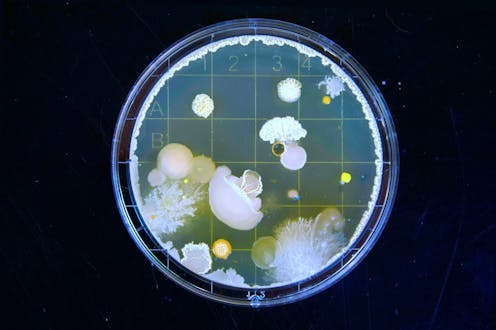
Life has transformed our world over billions of years, turning a dead rock into the lush, fertile planet we know today. But human activity is currently transforming Earth again, this time by releasing greenhouse gases that are driving dramatic changes in our climate. What if we could harness the power of living organisms to help rein in climate change? The field of “ engineering biology ”, which uses genetic technology to engineer biological tools for solving specific problems, may be able to help.
Perhaps the most dramatic success to date of this nascent field is the mRNA vaccines that helped us weather the COVID pandemic. But engineering biology has enormous potential not only to help us adapt to climate change, but also to limit warming. In our latest paper in Nature Communications, we reviewed some of the many ways engineering biology can aid the fight against climate change – and how governments and policy makers can make sure humanity reaps the benefits of the technology.

We identified four ways engineering biology might help to mitigate climate change. The first is finding better ways to make synthetic fuels that can directly replace fossil fuels. Many existing synthetic fuels are made from high-value crops such as corn and soybeans that might otherwise be used for food, so the fuels are expensive.
Some engineering biology research explores ways to make synthetic fuel from agricultural waste. These fuels could be cheaper and greener, and so might help speed up de.














